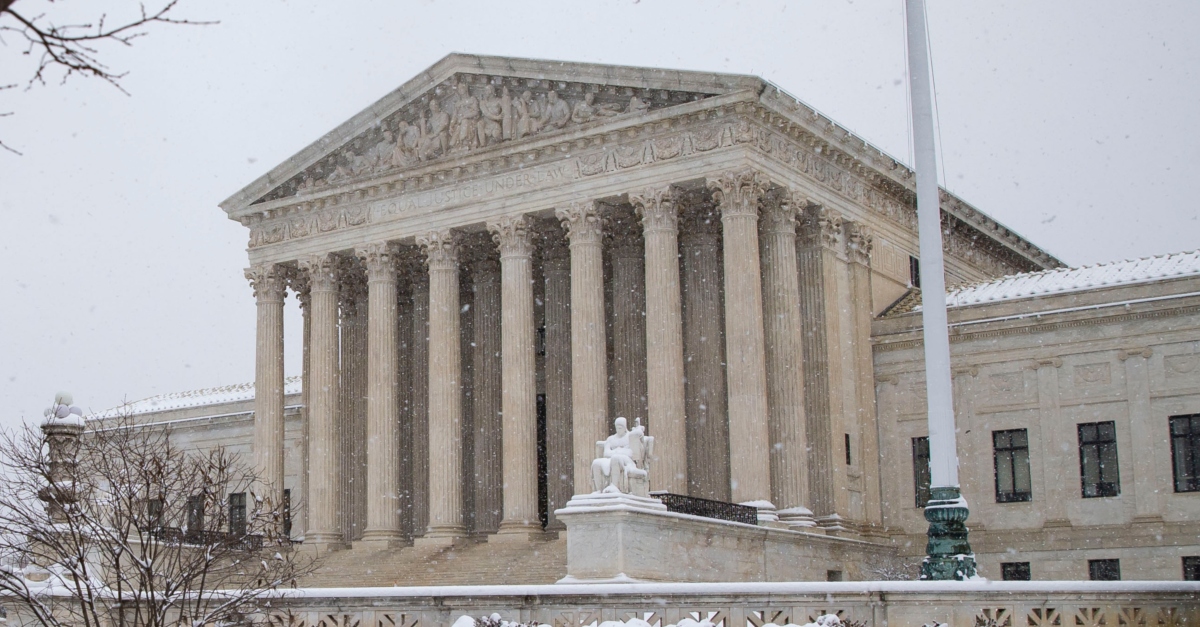
It’s tempting to think that every case the Supreme Court hears has massive, polarizing impact for every person in the nation. But here’s one you can bring up at your next holiday meal without worrying it’ll spin your relatives into a political frenzy. SCOTUS is hearing oral arguments Monday in Georgia v. Public.Resource.Org Inc. The case presents the question of whether copyright law copyrights law. Yes, you read that correctly. The State of Georgia is arguing that its legislative code is protected under federal copyright law and therefore, it cannot be legally copied without express permission.
Here’s how this battle arose.
Georgia hired LexisNexis to annotate and then publish its code. You see, legislatures pass statutes, most of which are very sterile, written in strict legalese, and lack any explanation. Various publishers (such as LexisNexis, Westlaw, A.L.R.) then publish the statutes along with annotations, which are summaries and analyses of the laws, along with some references for readers to look up how those laws have been used in various cases.
Public Resource.Org (PRO) is an organization that promotes access to government records and primary legal sources. It scanned the Official Code of Georgia Annotated (OCGA)and published it online. Georgia then sued PRO for copyright infringement.
Georgia isn’t arguing that its official code is protected by copyright. Judicial decisions and state statutes are generally considered “public policy” and therefore, not copyrightable. But what about the annotations? Are those “part of” the OCGA such that they too cannot be copyrighted? Or are they a copyrightable “work for hire” as Georgia’s contract with LexisNexis indicates?
In support of its position, Georgia brings up an interesting state-versus-federal comparison. The Copyright Act, 17 U.S.C. §105, specifically bars the federal government from owning a copyright in anything it creates. The same prohibition, however, does not extend to state governments. That difference, argues Georgia, means that the Copyright Act contemplates at least some level of copyright protection available to state governments.
By contrast, PRO argues that annotations are important enough to be afforded the same treatment as statutes themselves. Those annotations operate with the force of law, and are published by the state itself—therefore, requiring the same public availability as statutes.
While Georgia v. Public.Resource.Org Inc. certainly appears, on its face, to be an inside-law-nerd dispute of the most hair-splitting kind, it actually raises, as its central question, “what is law.” Okay, maybe your relatives can fight about it after all.